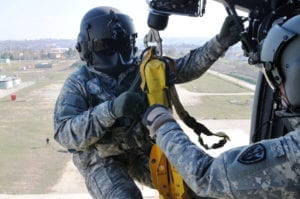I remember as a child turning on the TV and tuning in to an old movie. It was the 1939 version of the The Man in the Iron Mask, already in progress.
 Somewhere in the middle of the movie, I saw a scene depicting a prisoner locked away in a castle, with an iron mask over his head. I recall that he was pleading with his jailer for mercy, claiming that he was the true king of France. His jailer only laughed at his misery. Just then I was told to turn off the TV and get to bed.
Somewhere in the middle of the movie, I saw a scene depicting a prisoner locked away in a castle, with an iron mask over his head. I recall that he was pleading with his jailer for mercy, claiming that he was the true king of France. His jailer only laughed at his misery. Just then I was told to turn off the TV and get to bed.
For years that scene haunted me. “Oh, that poor man in the iron mask! Why were his jailers so cruel to him? Were there anyone to show him mercy? Why wouldn’t anyone give him justice?” That film – or, the tiny “snapshot” of it that I had seen – disturbed me so much that I never wanted to watch it again.
However, years later I saw the movie as an adult. It brought understanding revealing the identity of the man in the iron mask. I then realized that his plight was actually the justice he so richly deserved. The man in the iron mask was none other than the vile and cruel King Louis XIV. This king had imprisoned his twin brother, Philippe, for years. He forced his kind-hearted twin brother to wear an iron mask. This was with hope that Philippe would be smothered by his own beard.
In the movie, the men we know as the Three Musketeers discovered Philippe’s identity, broke into the prison, and set him free. Then they captured Philippe’s brother, Louis, placed the iron mask upon him and put him in prison in place of his brother. Philippe then assumed the throne, ruled justly, and became the historical figure we know as “the Sun King.”
All because I only saw a tiny fragment of the film, my interpretation of what I saw was completely wrong. I wrongly interpreted the villain of the movie as the persecuted hero.
My misinterpretation of that disturbing scene parallels our misinterpretation of the “injustices” of life.
Much of the suffering we witness in the world has a long story behind it. Perhaps once the stories are realized they reveal repeated risky and reckless behavior rooted in suffering that is self-inflicted. Nor do we realize the hopeful story which follows that same suffering, a story of redemption and transformation.
If we only knew the whole story, we would withhold judgment.
But our view is painfully limited and our information about the tragedies of life is fragmentary at best.

When I read some books of the Bible I must keep this concept in mind. For instance, when reading the biblical book of Joshua I might easily condemn it as a celebratory tale of Israel’s conquest of Canaan where they committed acts of genocide against the Canaanites.
But if I understood what preceded this “conquest,” then I’d understand the bigger picture. The book of Joshua was recorded more than 3,000 years ago. Archaeologists have uncovered the perverse and abusive acts of the Canaanites from this period of time. These acts included the slaughter of the land’s previous inhabitants and the routine murder of children on the altars of their pagan idols.
Only then, do I understand that this was not a conquest. Joshua’s mission actually carried the administration of divine justice against a grossly wicked people. And only when I read the rest of Scripture do I understand the necessity of Israel’s occupation of Canaan for the execution of God’s redemptive plan to save humanity.
The same principle is true when trying to make sense of the tragedies that strike us and those we love. We have little idea of the divine plan that allowed the tragedy nor of the good and glorious things which will be accomplished through the same tragedy. This has been the case of so many saints of God in the Bible: Abraham, Joseph, Moses, David, Job, Paul, and Jesus Christ. They all suffered according to the predetermined plan of God. And through their suffering God brought about righteousness and redemption.
things which will be accomplished through the same tragedy. This has been the case of so many saints of God in the Bible: Abraham, Joseph, Moses, David, Job, Paul, and Jesus Christ. They all suffered according to the predetermined plan of God. And through their suffering God brought about righteousness and redemption.
At the present time, our knowledge is fragmentary. As Paul the apostle stated, “All that I know now is partial and incomplete, but then I will know everything completely, just as God now knows me completely” (1 Corinthians 13:12, NLT). Eventually, perhaps not until we reach heaven, God will vindicate His wisdom and sovereignty in our lives and make perfect sense out of all its perplexing tragedies.
PRAYER:
Dear Father in heaven, though I do not understand why You allow pain and tragedy to come upon me and those I love, yet I trust in Your power, love, and wisdom. Please grant that my faith will grow stronger day by day and be vindicated in eternity. Amen.







